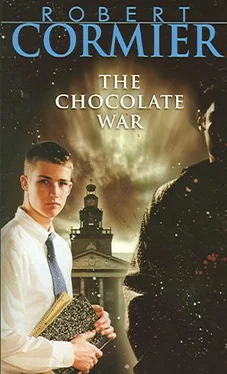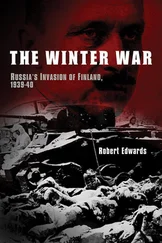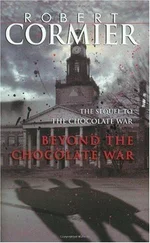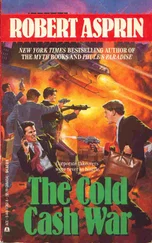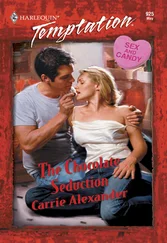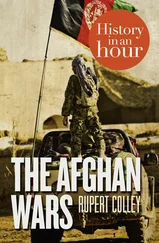"Bailey," Leon said. But not looking at Bailey, looking at the class as if they were all in on a joke that Bailey knew nothing about. As if the class and Leon were banded together in a secret conspiracy.
"Yes, Brother Leon?" Bailey asked, his eyes magnified behind the glasses.
A pause.
"Bailey," Brother Leon said. "Why do you find it necessary to cheat?"
They say the hydrogen bomb makes no noise: there's only a blinding white flash that strikes cities dead. The noise comes after the flash, after the silence. That's the kind of silence that blazed in the classroom now.
Bailey stood speechless, his mouth an open wound.
"Is silence an admission of guilt, Bailey?" Brother Leon asked, turning to the boy at last.
Bailey shook his head frantically. Jerry felt his own head shaking, joining Bailey in silent denial.
"Ah, Bailey," Leon sighed, his voice fluttering with sadness. "What are we going to do about you?" Turning toward the class again, buddies with them — him and the class against the cheat.
"I don't cheat, Brother Leon," Bailey said, his voice a kind of squeak.
"But look at the evidence, Bailey. Your marks — all A 's, no less. Every test, every paper, every homework assignment. Only a genius is capable of that sort of performance. Do you claim to be a genius, Bailey?" Toying with him. "I'll admit you look like one — those glasses, that pointed chin, that wild hair…"
Leon leaned toward the class, tossing his own chin, awaiting the approval of laughter, everything in his manner suggesting the response of laughter from the class. And it came. They laughed. Hey, what's going on here, Jerry wondered even as he laughed with them. Because Bailey did somehow look like a genius or at least a caricature of the mad scientists in old movies.
"Bailey," Brother Leon said, turning his full attention to the boy again as the laughter subsided.
"Yes," Bailey replied miserably.
"You haven't answered my question." He walked deliberately to the window and was suddenly absorbed in the street outside, the September leaves turning brown and crisp.
Bailey stood alone at the front of the class, as if he was facing a firing squad. Jerry felt his cheeks getting warm, throbbing with the warmth.
"Well, Bailey?" From Leon at the window, still intent on the world outside.
"I don't cheat, Brother Leon," Bailey'said, a surge of strength in his voice, like he was taking a last stand.
"Then how do you account for all those A 's?"
"I don't know."
Brother Leon whirled around. "Are you perfect, Bailey? All those A 's — that implies perfection. Is that the answer, Bailey?"
For the first time, Bailey looked at the class itself, in mute appeal, like something wounded, lost, abandoned.
"Only God is perfect, Bailey."
Jerry's neck began to hurt. And his lungs burned. He realized he'd been holding his breath. He gulped air, carefully, not wanting to move a muscle. He wished he was invisible. He wished he wasn't here in the classroom. He wanted to be out on the football field, fading back, looking for a receiver.
"Do you compare yourself with God, Bailey?"
Cut it out, Brother, cut it out, Jerry cried silently.
"If God is perfect and you are perfect, Bailey, does that suggest something to you?"
Bailey didn't answer, eyes wide in disbelief. The class was utterly silent. Jerry could hear the hum of the electric clock — he'd never realized before that electric clocks hummed.
"The other alternative, Bailey, is that you are not perfect. And, of course, you're not." Leon's voice softened. "I know you wouldn't consider anything so sacreligious."
"That's right, Brother Leon," Bailey said, relieved.
"Which leaves us with only one conclusion," Leon said, his voice bright and triumphant, as if he had made an important discovery. "You cheat!"
In that moment, Jerry hated Brother Leon. He could taste the hate in his stomach — it was acid, foul, burning.
"You're a cheat, Bailey. And a liar." The words like whips.
You rat, Jerry thought. You bastard.
A voice boomed from the rear of the classroom. "Aw, let the kid alone."
Leon whipped around. "Who said that?" His moist eyes glistened.
The bell rang, ending the period. Feet scuffled as the boys pushed back their chairs, preparing to leave, to get out of that terrible place.
"Wait a minute," Brother Leon said. Softly — but heard by everyone. "Nobody moves."
The students settled in their chairs again.
Brother Leon regarded them pityingly, shaking his head, a sad and dismal smile on his lips. "You poor fools," he said. "You idiots. Do you know who's the best one here? The bravest of all?" He placed his hand on Bailey's shoulder. "Gregory Bailey, that's who. He denied cheating. He stood up to my accusations. He stood his ground! But you, gentlemen, you sat there and enjoyed yourselves. And those of you who didn't enjoy yourselves allowed it to happen, allowed me to proceed. You turned this classroom into Nazi Germany for a few moments. Yes, yes, someone finally protested. Aw, let the kid alone." Mimicking the deep voice perfectly. "A feeble protest, too little and too late." There was scuffling in the corridors, students waiting to enter. Leon ignored the noise. He turned to Bailey, touched the top of his head with the pointer as if he were bestowing knighthood. "You did well, Bailey. I'm proud of you. You passed the biggest test of all — you were true to yourself." Bailey's chin was wobbling all over the place. "Of course you don't cheat, Bailey," his voice tender and paternal. He gestured toward the class — he was a great one for gestures. "Your classmates out there. They're the cheaters. They cheated you today. They're the ones who doubted you — I never did."
Leon went to his desk. "Dismissed," he said, his voice filled with contempt for all of diem.
What're you doing, Emile?" Archie asked, amusement in his voice. The amusement was there because it was obvious what Emile Janza was doing — he was siphoning gas from a car, watching it flow into a glass jug.
Emile giggled. He, too, was amused that Archie should have discovered him performing such an act.
"I'm getting my gas for the week," Emile said.
The car, parked at the far end of the school's parking lot, belonged to a senior by the name of Carlson.
"What would you do, Emile, if Carlson came along and saw you stealing his gas?" Archie asked, although he knew the answer.
Emile didn't bother to reply. He grinned knowingly at Archie. Carlson wouldn't do anything about it at all. He was a thin, mild kid who hated getting involved in messes. Not too many people defied Emile Janza, anyway, whether they were fat or skinny, mild or not. Emile was a brute which was kind of funny because he didn't look like a brute. He wasn't big or overly strong. In fact, he was small for a tackle on the football team. But he was an animal and he didn't play by the rules. Not if he could help it. His small eyes were imbedded in pale flesh, eyes that seldom smiled despite the giggle and the grin that sometimes flashed across his face, especially when he knew he was reaching people. That's what Emile Janza called it — reaching people. Like whistling softly in class so that it got on the teacher's nerves, a barely perceptible whistle that could drive a teacher up the wall. That's why Emile Janza reversed the usual process. Wise guys usually sat in back. Emile didn't. He chose seats near the front where he'd be in better position to harass the teacher. Whistling, grunting, belching, tapping his foot, stirring restlessly, sniffling. Hell, if you did that kind of stuff from the back of the room the teacher wouldn't notice.
But Emile didn't harass only teachers. He found that the world was full of willing victims, especially kids his own age. He had discovered a truth early in life — in the fourth grade, in fact. Nobody wanted trouble, nobody wanted to make trouble, nobody wanted a showdown. The knowledge was a revelation. It opened doors. You could take a kid's lunch or even his lunch money and nothing usually happened because most kids wanted peace at any price. Of course, you have to choose your victims carefully because there were exceptions. Those who protested found that it was easier to let Emile have his way. Who wanted to get hurt? Later, Emile stumbled upon another truth, although it was hard to put into words. He found that people had a fear of being embarrassed or humiliated, of being singled out for special attention. Like in a bus. You could call out to a kid, especially one who blushes easily, and say, "Jeez, you got bad breath, know that? Don't you ever brush your teeth?" Even if the kid had the sweetest breath in the world. Or. "Did you lay a fart, kid? What a dirty thing to do." Softly, but loud enough for everybody to hear. Stuff like that — in the cafeteria, during lunch, in study class: But it was better in public places, with strabgers nearby, especially girls. That's when the kids squirmed. As a result, people went around being extra nice to Emile Janza. And Emile basked in that treatment. Emile was not stupid but he was not exactly bright in class. However, he managed to squeak by — no F 's, only a couple of D 's, all of which satisfied his father whom Emile regarded as stupid and whose major dream was to have his son graduate from a fancy private school like Trinity. His father didn't know how cruddy the place was.
Читать дальше
